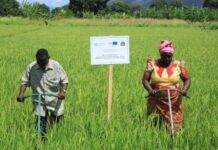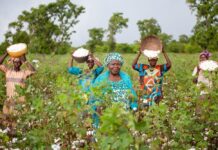The Namibian government has banned farmers from harvesting excrement from both domestic and wild birds to stop the spread of a deadly form of bird flu that can be transmitted to humans.
The directive was issued by the government’s directorate of veterinary services after Namibia detected the virulent virus for the first time in the country’s history.
The highly-pathogenic H5N1 avian influenza, or HPAI, was found in wild birds in the towns of Walvis Bay and Swakopmund on the southwest African nation’s coastline.
Over 200 seabirds have died in recent days.
As a result the government has banned the harvesting of guano, or bird excrement used for fertilisers. Guano is the excrement from seabirds.
As a manure, guano is a highly effective fertiliser due to its exceptionally high content of nitrogen, phosphate, and potassium. The are key nutrients essential for the growth of crops.
Earlier in the week, the government had also banned movement of live and domestic birds.
Bird flu often spreads through migrating birds and highly pathogenic varieties can be deadly to poultry.
“The source of infection is believed to be the wild migratory birds and the HPAI H5N1 strain is being detected for the first time in the history of Namibia,” the directorate of veterinary services said.
Meanwhile, the government has advised the public to avoid touching visibly sick, dying or freshly dead seabirds with bare hands.
It said people who might have come into contact with the birds and are showing flu-like symptoms within 10 days of handling birds should report to their nearest health facilities.
Seabirds with avian influenza have symptoms that include dazed behaviour, weakness, an inability to sit down or stand, twitching, seizures and in some cases foam or mucus on the bird’s beak or around the eyes.
Wild birds play a major role in the maintenance and spread of Avian Influenza viruses. Infected birds shed the virus in their saliva, nasal secretions and feces. Domesticated birds, (chickens, turkeys, ducks) and other birds may become infected through direct contact with infected wild birds, other infected poultry or through contact with surfaces that have been contaminated with the virus.
Last November, Namibia suspended imports of live poultry, birds and poultry products from Germany and the Netherlands after outbreaks of the highly pathogenic H5N1 bird flu in the European countries.
Germany had reported the bird flu outbreak at a goose farm that month while commercial farms across the Netherlands were ordered to keep all poultry inside after an outbreak at a farm in the central province of Flevoland.








